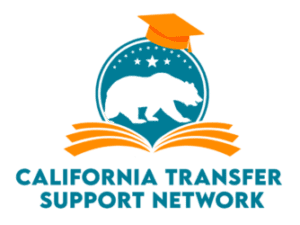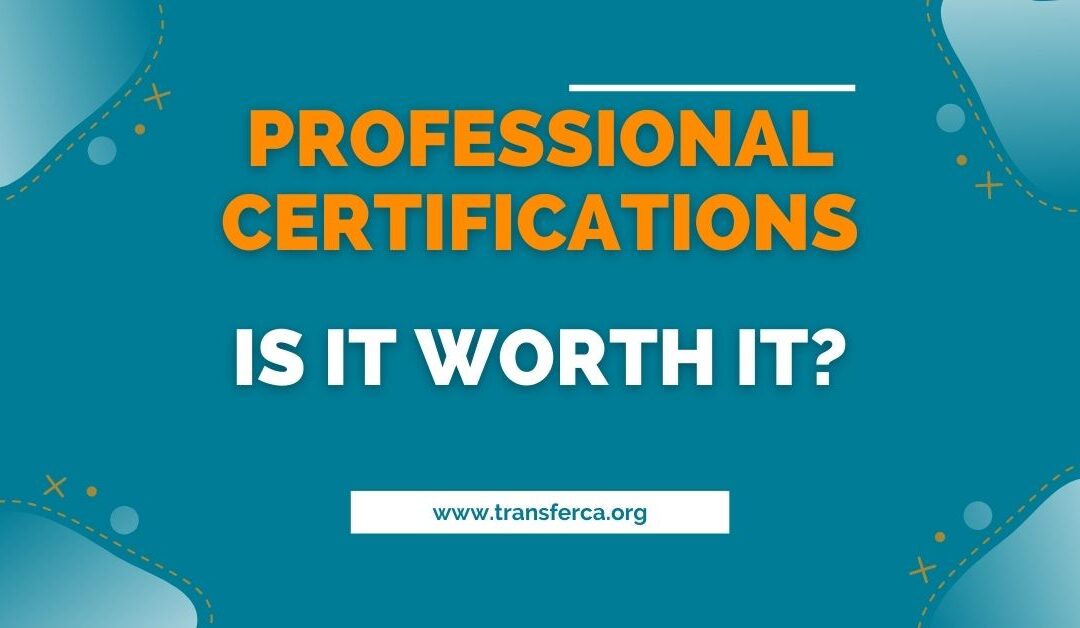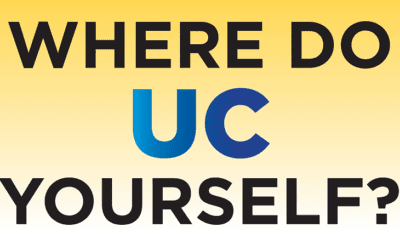You’ve probably heard of professional certifications, but what is it exactly? Professional certification is a process by which an individual demonstrates that they have the necessary skills and knowledge to perform a specific job. Certification can be obtained from many different sources, but it is often granted by a professional organization or institute.
Certification can be a great way to demonstrate your dedication to your chosen profession and help you stand out from the competition when applying for jobs. But is professional certification really worth the time and money? Let’s take a closer look.
The Pros of Certification: Why Invest in Earning a Certification?
College and high school students face many decisions about their future. One common question is whether to invest time and money into earning a certification. While every decision has pros and cons, we will first explore the potential benefits of certification to help young adults make informed decisions.
Read Our Post: Answer the Question: Better to Learn a Trade or go to College?
Improve Job Market Prospects
There are some advantages to certificates. For one thing, it can help you land a job. In today’s job market, trade credential is valuable for employers who are often inundated with applications from qualified candidates.
A professional credential can help you set yourself apart from the rest and give you a better chance of being called in for an interview.
The variety of training programs allows students to acquire professional certifications in various fields, industries, or skilled trades.
For example, one can learn about software and receive software credentials. Or someone can learn about the power of human resources and project management and enroll in a professional certifications program that teaches those skills.
For example, a project management diploma program can be an important deciding factor for potential employers who want someone with PMP credentials who can handle the tasks involved in human resources, customer relationship management, and sales certificates.
Think of professional credentials as a bonus to improving your formal training and accruing job search resources that advance your career beyond the mere entry-level position.
Read Here: When Do UC Decisions Come Out?
Increased Earning Potential
According to the U.S. Bureau of Labor Statistics, median weekly earnings for workers with a professional credential are nearly 30 percent higher than those without certificate. In some cases, the earnings premium can be even higher.

For example, a certified public accountant (CPA) can earn almost 60 percent more than non-CPAs with the same education level. These certified professional organizations implore a certified associate to handle significant real-world issues (i.e., taxes).
Universal Requirements for Specific Certificate Programs
Taking the CPA example further, such a program has internal certifications not handed out by a governmental entity but by professional organizations dedicated to role-specific credentials.
These organizations are responsible for not only making the certifications programs a necessity but also a safeguard between the public and the CPAs who may be acting with nefarious intent and outside the confines of a legally defensible assessment.
Another critical industry is the medical profession or health care field. Medical professionals go through an extensive educational program because the task requires particular specialties that only a handful of individuals can.
Profession-wide, doctors, nurses, and other health care officials must complete certificate programs routinely to ensure more credibility and risk management within the entire profession.
Career Advancement
In addition to increased earnings potential, workers with credentials may also have better opportunities for career advancement.
Once you’ve worked in your field for a while, you might feel like you’ve hit a glass ceiling in terms of job prospects. If that’s the case, obtaining credentials in your field could open up new opportunities.
Certified employees are often seen as more credible and competent than those without credentials, so certificate programs could be just what you need if you’re looking to move up in your career. Many employers prefer to promote or hire employees who have demonstrated commitment to their profession by obtaining a diploma.
There is also the unique opportunity to work alongside individuals interested in the same career as you and can provide career advice that will give you a competitive advantage in your new career. Many certificate programs have professional standards and a project manager that will serve in a senior professional role and will likely be your instructor.
Read Here: The Importance of Counselors in the Transfer Process
Employers May Require Certification
Furthermore, some employers may require certain credentials for certain positions. For example, most states require CPAs to pass an examination before they can practice accounting.
Many professional certificates have exclusive network hiring partners supporting graduates from specific school programs. The employability prospects right out of a certificate program are crucial to jumpstarting your new career and finding advancement opportunities in the industry.

Moreover, these programs allow students to work independently and improve their time management skills. Improving your professional skills will help you start your new career and make you seem determined for more senior roles.
Not all certifications require standardized testing requirements. For example, digital marketing and human resources certifications typically do not require an assessment process and can be done with an online program.
Greater Job Security
In today’s economy, many workers are concerned about job security. Wisely investing in certification can provide some protection against unemployment since certified workers may have an advantage in the job market over those without certification.
For example, certifications in information technology (IT) ensure that certified workers keep their jobs even when there are layoffs in the IT department because employers value the skills and knowledge certified workers bring to the table.

Final Thoughts: Pros of Professional Certifications
Earning a professional certificate comes with many potential benefits, including increased earnings potential, greater job security, and improved career advancement prospects.
Before deciding whether to earn a certification, young adults should weigh the pros and cons carefully to ensure that it is the right decision for them.
The Cons of Certification
Much like any debate or issue, there are some drawbacks associated with the certificate route.
These issues can be exacerbated depending on your circumstances and experiences, so speak with someone you trust before making a monumental life decision.
Cost of Certification
For many, pursuing professional certification can be a great way to advance their careers. However, there are also some potential drawbacks to consider.
One of the biggest potential downsides is the cost of the certification program. In many cases, these programs can be quite expensive, and there is no guarantee that you will be able to recoup the cost through increased earnings.
Everything you Need to Know About Trade Schools
Of course, certification isn’t right for everyone. The price of certification can range from a few hundred dollars to several thousand, depending on the program you choose and the source of your certification.
In addition, you might have to pay annual fees to maintain your certified status. Additionally, many employers do not require certification for certain positions, so you may not see any direct benefits in job opportunities.
Lack of Tangible Benefits
Another potential downside of certification is that it might not yield tangible benefits.
Just because you have a piece of paper that says you’re certified doesn’t mean that employers will be lining up to hire you or that your current boss will automatically promote you.
In some cases, the only people who will care about your certification are other certified professionals in your field – everyone else might not even know what it is!
Recommended Reading: Transfer College Using ASSIST
Time-Consuming
Finally, certificate programs can take up a significant amount of time and effort, and there is no guarantee that you will pass the exams on your first try.
Depending on your chosen program, obtaining certification could mean taking classes or attending seminars, not to mention studying for and then taking the exam.

Finding time to fit that into your schedule can be tough if you’re already working full-time. Ultimately, whether or not pursuing certification is right for you depends on your specific goals and circumstances.
Are Certificates Worth it?
Overall, the purpose of this blog post was to demonstrate the Pros and Cons associated with professional certificate programs.
The benefits of certification programs range from improving job market prospects and increased earning potential to even being a requirement for certain employers before hiring.
However, there are also some drawbacks, such as the cost of certification, the lack of tangible benefits, and the time-consuming nature of the process.
Ultimately, the decision to pursue professional certification or not should be based on your specific goals and needs.
Let CTSN Help You
If you need help navigating the California Community College transfer process, our team is standing by to assist you, free of charge.
We provide free resources to transfer students, including resume reviews, personal statement edits, and an individualized course plan. Contact Us today for free support, and consider making a tax-deductible Donation if you can.





